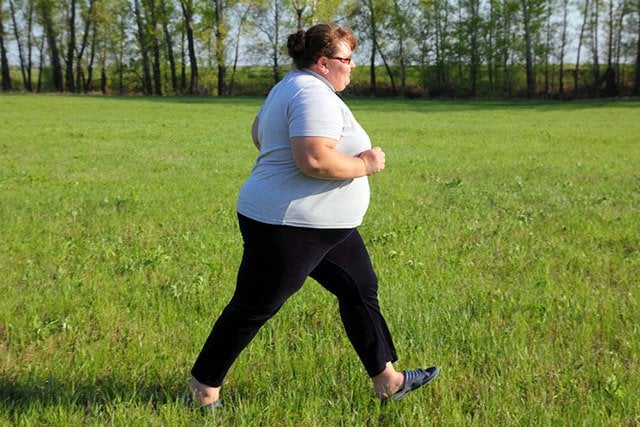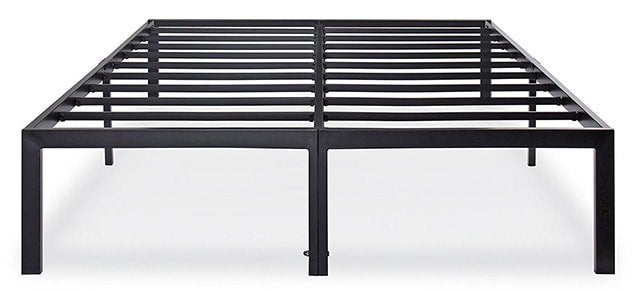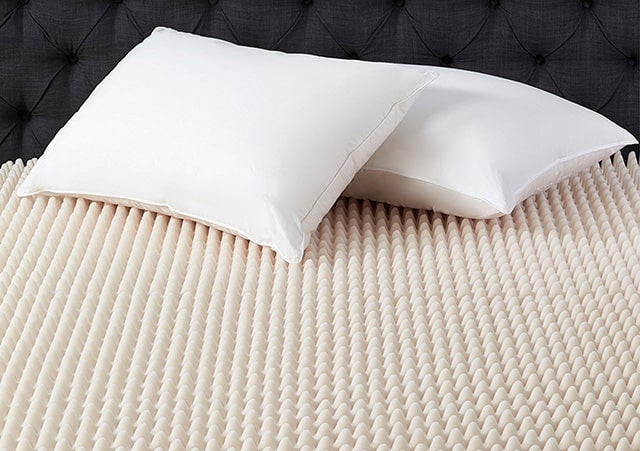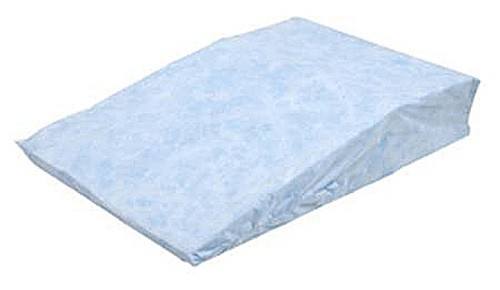Obesity is defined as when a person’s quality of life and health may be negatively effected based upon their ratio of body fat to body mass. A general indicator of your correct body mass can be calculated using your height and weight to determine if you fall within a category of overweight or obese. This is called the Body Mass Indicator or BMI, and provides a good measurement of an ‘average’ person, although it cannot take into account muscle mass or fat accumulation.
Most people are considered obese if they are 20% heavier than what they should be for their height because it is at this point that health issues often arise due to excess weight. Excess weight can lead to a myriad of physical health issues, as well as mental discomforts due to the many negative stigmas surrounding the obese. Cardiovascular disease, high blood pressure, diabetes, arthritis, asthma, and some cancers can all be caused by or negatively affected by poor weight management.
What Causes Obesity?
Although many people wrongly contribute obesity to stereotyped lifestyle choices, such as laziness, poor eating habits, and sedentarism- obesity can be caused by many medical reasons as well. Negative stereotypes and body shaming surrounding the overweight have also become somewhat of a societal norm, which drives those searching for help and support even further from what they need to be healthy.
Although obesity can be caused by poor eating habits and a sedentary lifestyle, it can also be caused by metabolic diseases, hormone imbalances, medical disabilities, genetics, and also poor rest which can disrupt normal neurological functions over time. If you struggle with weight issues, or cannot seem to lose weight, it’s best to speak with your healthcare provider to rule out any medical issues that might best be treated with medications so you can then begin to better approach any weight loss plans you may have.
Complications
Mentioned above were a few of the medical issues that can arise in relation to obesity. Life-threatening, and long term care of some of the resulting diseases are often common with the chronically overweight or obese. Unfortunately it’s often difficult to approach weight loss for health improvement due to some of the other discomforts that arise as well.
Movement
Basic daily tasks and movement that we take for granted can be difficult or impossible if you are too heavy. Just walking can be an effort, making it difficult to lose weight, due to the extra weight wearing on the joints of your hips, knees, and feet. Tying shoes, dressing, and standing up from a sitting position can also be a challenge due to limited flexibility or inability to reach certain parts of your body. Plus all of this equals an added strain on your heart and breathing, making you chronically tired as well.
Breathing Constraints
Breathing is almost always compromised due to extra weight as fat doesn’t allow for your rib cage to expand as it should, or provide the space for your diaphragm to move downwards. Labored breathing restricts blood flow through your body as well, which can cause dizziness and occasionally chronic hypoxia- low blood oxygen levels. This may result in Obesity Hypoventilation Syndrome where patients have chronically low blood oxygen levels and too much carbon dioxide. This makes breathing in deeply a laborious problem, and restricts movement even further.
Obstructive Sleep Apnea
Sleep apnea is a serious disorder that causes you to stop breathing during sleep. The airway becomes blocked repeatedly, resulting in snoring or choking, and often wakes the sleeper- further disrupting rest and interrupting the sleep cycle that is crucial in supporting body health and function. The strain the overweight already puts on their breathing often results in sleep apnea as well, and most people who are obese also struggle with this disorder.
Acid Reflux
Acid reflux, or heartburn, is when stomach acid flows back into the esophagus. This causes for a mild to severe burning discomfort through the chest area and/or throat, as well as a bad taste in their mouth. High levels of belly fat are often associated with this problem, which can be incredibly uncomfortable when lying in a prone position.
Comfort
Obviously all of the above results in an increased discomfort both physically and mentally to anyone struggling with their weight. Constant exhaustion is a common complaint, as are typical, everyday comforts. When sitting or laying down increased pressure points may be an issue, as is fitting properly into standard sized chairs or beds.
Poor sleep, labored breathing, and uncomfortable movement is all a recipe for a vicious cycle that lends little support to an increased quality of life. What is important to note though, is that sleep can play a major role in helping to support weight related disabilities and increase the mental outlook to begin to make the small changes that will eventually add up to an increase in supportive health function. By starting with improvements surrounding sleep quality, one can better take on the rest.
Check our related article about sleep and obesity.
You might want to read our related article: How Does Sleep Help with Weight Loss?
Importance of Sleep
Sleep is a critical component to your overall health. It is vital to your physical health, brain function, and emotional well being- and if you don’t get enough of it it doesn’t take long to feel the effects. On average an adult should be getting between 7 and 9 hours of uninterrupted sleep each night, and less can cause sleep debt in which your body is attempting to play catch up. This lack of sleep can contribute in time to poor memory, struggles with problem solving tasks, physical strength, and many health issues, including struggles to maintain a healthy weight.
When we drift off to sleep each night our brain enters into series of sleep stages which is cycled through multiple times. These stages are responsible for varying depths of sleep and are believed to be a part of our processing center and memory control. This means it supports cognitive function, and is what helps us problem solve and learn new tasks.
Therefore it’s no wonder our brains feels foggy and slow on days when we know we haven’t slept well the night before. Sleep is also when our body’s heal. Muscle and bone growth, tissue repair, reversal of cellular damage, hormonal function support, and metabolic changes are all part of the rejuvenation and healing processes our body experiences when it slows down and enters into a period of rest.
Sleep and Weight Loss
A history of sleep deficiency increases the chance of obesity due to a couple of different factors. First off, sleep helps balance hormones, including the hormones ghrelin and leptin which control whether you feel hungry or full. When you don’t get enough sleep ghrelin levels rise, but leptin levels drop- making you predispositioned to eat in order to produce more energy. Your brain function is also somewhat disabled, and decision making skills are lowered, stimulating the reward areas in your brain. This makes you more predisposed to turn to comfort foods- such as high carb, high fat snacks. This all may also lead to a spike in cortisol, the stress hormone that signals your body to conserve energy for fuel.
Sleep also supports your insulin levels, the hormone that controls blood sugar levels. When this is interrupted your body struggles to process sugar, rising levels in your body, and increasing a risk for diabetes. This affects how your fat cells function to remove fatty acids and lipids from your bloodstream to prevent fat storage.
Sleep and Fitness
Since sleep is such a vital part of your holistic health, a lack of it most certainly will negatively affect any fitness routine you plan on incorporating into your weight goals. Chronic sleep loss can lead to a sharp decrease in glucose metabolism, which regulates the normal functions of the body. When you body is taxed, your energy will go more towards the alleviation of the stress this places on your organs, leaving less for everything else. This means you are able to perform at full function, making the movement you are attempting to incorporate into a healthier lifestyles is being negated.
Sleep Products
It’s obvious that sleep plays a crucial role in getting you healthier, more comfortable, and moving towards a weight loss goal. But if you are struggling to sleep due to interruptions in your rest caused by weight related symptoms, and yet are struggling to lose weight due to these symptoms- then you first need to resolve the issues pertaining to sleep in order to move forward with your weight goals. Supportive bedding and sleep aides, combined with sleep aides can help set you on the right track to gain control of your nights and get the rest you deserve.
Bed Frames
Not all bed frames are created equal, and before purchasing a bed frame you should take into account the overall weight capacity, especially if you share a bed with a partner, pets, or occasionally have children crawling in to snuggle up with you. You don’t want to have to worry about putting too much pressure on your bed which may result in stressed points, or worse, any sort of breaking or collapsing. This may not only be embarrassing, but could be dangerous as well.
Steel bed frames truly are your best option as they are made of a high quality material created for heavy load bearing. They may not always be the prettiest choices, but that doesn’t mean you have to sacrifice style for support. With all the many headboards and footboards now sold separately to connect to bed frames, or even the many DIY tutorials online you can get exactly what you want. Some frames amy even fit right inside an existing, more ornate, bed frame and act solely as the support you need, rather than as a replacement bed. Adjustable bases may also be good choices for the overweight as they better help position you for comfort, breathing, and also movement in and out of bed.
Mattresses
Your mattress may be the single most important comfort option you have to introduce a better night’s sleep. Overweight bodies have a tendency to have issues with uncomfortable pressure points, a quick breakdown of materials, problems with mobility, and heat retention in their mattress choices, so it’s important to put both time and money into quality items that help support both weight and comfort each night. As with any mattress, your comfort is specific to the factors that are uniquely you- such as your weight, height, and sleep position preferences. If you aren’t interested in shopping for a new product every few years, you’ll want to purchase a high quality product from the start.
Quality materials include high coil count, low gauge wire innerspring mattresses, and high density foams and memory foams. When shopping for a mattress it’s important to ask the questions that will help get you what is best for your shape and size. When shopping for a new mattress consider the following to find what best suits your needs. First, know what didn’t work for you on your last bed. Did it sleep too hot? Was it too firm or too soft? Knowing what you don’t like will better help focus you towards what you like, and need. Know the weight bearing load of the mattress, and like a bed frame, consider who or what else may be on the bed along with you. Mattress thickness is also a detail you should consider. Thinner mattresses naturally have less material, and most likely a thinner comfort layer.
Heavier weights will create greater compression, so having the layer support you need is important for a long lasting product and your long term sleep health. A medium-firm to firm mattress is most likely going to provide you with better overall support as well. What may be extra firm to a lightweight body may feel more in the mid-range of firmness levels due to weight differences. Combined with ma
Bedding/Mattress Protectors
Since heat is held in your body and dissipates through your skin, larger bodies retain a higher temperature more easily as the heat is released more slowly. Plus, in the obese, body fat also works as an insulator, further regulating heat dispersal. This can be uncomfortable, especially at night when covered up with blankets essentially further trapping heat against the skin.
Mattress materials can also be a source of discomfort as some materials more easily retain heat as well. Memory foam is often a culprit of this, although many companies have begun providing cooling gel layers to provide better surface breathability. When our bodies retain heat we sweat to help cool ourselves down which can also lead to discomfort not only from the heat, but from the dampness left behind as our body attempts to regulate itself. Mattress protectors that both absorb and wick moisture away from your skin, and protects the mattress beneath calls for a much more comfortable night but provides a healthier sleep environment and mattress warranty protection.
Pillows
Mentioned earlier were some of the breathing issues that can arise due to obesity, which can even lead to sleep apnea. How your body is positioned affects your airway, and certain pillows may aide in your comfort to help alleviate airway obstruction and relieve heartburn. Your neck is the body part most in question surrounding the best pillow choice, and your choice should be driven by your sleep position because it should support your overall spinal alignment. Thinner pillows are suggested for back and stomach sleepers to keep from adding extra strain upon the upper spine and to keep your obstructing your airway. Side sleepers should have a firm pillow to provide support to the neck area between the shoulder and ear, as well as to keep the spine in alignment.
Sleep Positioning
If you use pillows to prop yourself up as a sleep positioning aide, you may want to consider the specialized wedges and pillows made specifically for that purpose. Sleep position is an important aspect of your sleep already, and when you suffer from additional ailments surrounding your weight, then you should consider how to best support yourself each night. Sleeping on your back is actually the best position to sleep in for your health, especially with a thin pillow to keep your neck aligned with your spine. Placing a rolled towel or pillow beneath the knees is also very helpful for spinal support. However, if you have sleep apnea or breathing issues, you may need to sleep on your side or in a propped up position to keep your airway more open.
Ergodynamic bed frames can help with this. This is also helpful if you suffer from acid reflux. Left side sleepers are creating an improvement on blood circulation. Right side sleepers actually add stress to their cardiovascular system, and should be avoided. When you place cushioning or pillows between your legs you also cushion your knees, and support hip and joint alignment.
Sleep Apnea Relief
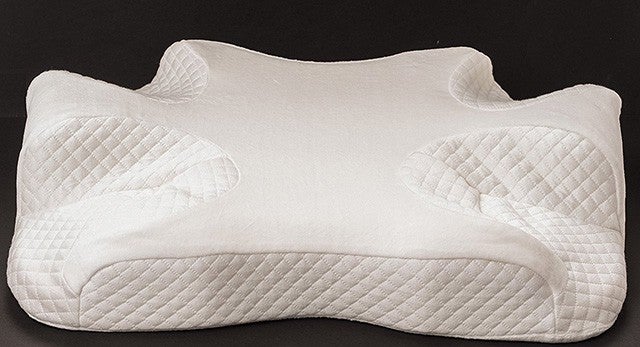
Surgeries and dental devices are occasionally an option depending on the severity of the problem, but most of the worst cases are treated with BiPAP and CPAP machines that work to provide airflow through the airways and keep them open. This needs to be used nightly however for maximum benefit. Side sleeping can often help with mild cases, as can special pillows that help reposition and hold your head in certain positions to help allow better airflow while you sleep.
Sleep Tips
Addressing individual discomforts first to either alleviate them or remove them completely should be the first step towards getting some rest, but there are also many sleep tips you can include in your daily routine to help provide the best sleep environment possible.
Avoid sugars, alcohol, caffeine, and tobacco prior to bed. Sugar and caffeine can stay in your system up to 6 hours and forces your body to process them- causing it to be at work during the times you may want to be getting ready to sleep.
Dim your lighting and turn off all sources of blue light, such as tablets, phones, television, and computers. This bluelight mimics daylight and reduces the hormone production of melatonin- a natural sleep aide your body produces.
Lower the temperature of your room to support ideal sleeping temperatures. Cooler rooms between 60 and 67 degrees fahrenheit are considered the best range to support the natural cooking your body experiences as you fall asleep. This allows your body to slow both heartbeat and breathing for other functions to occur.
Create a nighttime ritual to ready yourself for bed each day. Not only does this support your natural body rhythm, but mentally stimulates you to rest.
Conclusion
If you, or anyone you know, is struggling with obesity and the many discomforts that can accompany it, know that rest is a vital element to help live a healthier lifestyle. Restful sleep supports the body and can provide a foundation for weight loss. Unfortunately sleep is often disrupted due to weight related issues, so approaching this problem for a better night’s rest can be supportive of many other health related concerns. Proper rest allows the body to heal and helps weight loss functions. It also is mentally stimulating, and provides a more positive outlook for long-term results. There are many steps one can take to get a good night’s rest. Personal habits, proper positioning, comfortable sleeping surfaces and comfort aides, as well as regular support from your healthcare provider are all within your control.

